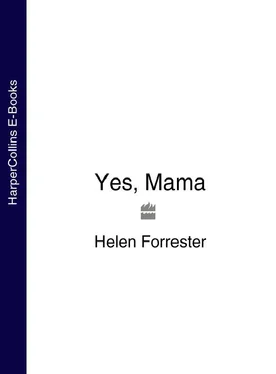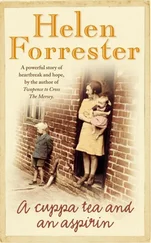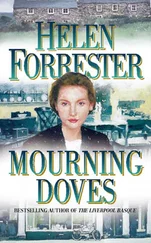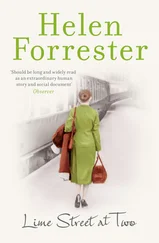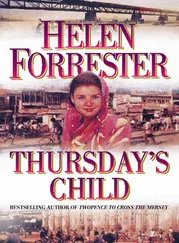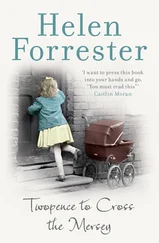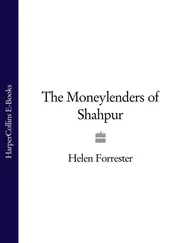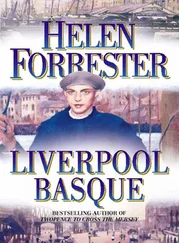Perhaps because the room was Edward’s childhood nursery and Polly was not unlike the nanny he had known long ago, his military stiffness left him. While Alicia dozed in the warmth of the fire, her head on his shoulder, he talked easily to buxom, blue-eyed Polly.
Polly watched the yellowed, strained face and fell helplessly in love with every line of it. On other nights, while Alicia slept in the next room, she listened avidly, with her sewing needle poised above her mending, to his stories of the jungles of Burma filled with small, brown men who wore only loincloths. Glad to have a genuinely interested audience, he described the wild beauty of the Himalayas and a particularly dangerous spot called the Khyber Pass, where wicked men in turbans hid amongst the rocks and fired at British soldiers. Normally, he was a quiet, dull man, who, as a boy, had tried to live up to his father’s expectations and had failed. To escape, he had joined the army – a nondescript foot regiment – and he knew he would never be a particularly outstanding soldier either. To Polly he seemed a wonderful person, and she treated him as such.
‘Aye, he’s a lovely man,’ she said wistfully one day to Fanny, who, quick of eye, had noticed the blush which rose to Polly’s cheeks when Master Edward’s name was mentioned in the kitchen and had later teased her about it.
‘Does ’e coom to your room?’ inquired Fanny with great interest, as she quickly dusted the hallway of the top storey.
Polly was changing into her afternoon uniform, ready to open the front door to Elizabeth’s callers, and she paused in tying her apron.
‘Aye,’ she whispered, ‘but don’t tell no one, Fan. He’s a really good man and I wouldn’t want ’is Mam to find out.’
‘Watch out you don’t get in the family way,’ Fanny warned, as she commenced to dust down the bare wooden stairs that led up to the nurseries. After a moment, she looked up again. ‘Be careful. He could tell someone. Some of ’em is real organ-grinders. When did it start?’
Polly adjusted her frilly cap and prepared to come down the stairs. ‘He’ll never tell nobody,’ she replied firmly. Then, in answer to Fanny’s question, she went on, ‘It all coom about, the year ’e coom down with malaria. Remember, ’e coom home and the mistress and me ’ad to nurse ’im? He were home a long time, till ’e got over it.’ She sighed. ‘It were then when he were better and not yet called back to ’is Regiment.’ As she sidled past Fanny on the stairs, she giggled suddenly. ‘He couldn’t do it, first time – he were too weak!’
‘Do ’e give you anythin’ for it?’
‘No. I don’t want nothin’. I love ’im.’ The dark head with its frilled cap was raised proudly, as she paused, hand on banister, to look back at her fellow servant.
Fanny opened the staircase window and leaned out to shake her duster. She laughed. ‘Aye, you’ve got it bad, you ’ave.’
Polly sighed again. ‘Aye. I wish he didn’t ’ave to go to them furrin parts. The Missis told the Master as he’s goin’ back to India soon – he’s bin in Aldershot so long, I begun to think he’d be there always. It makes me sick to me stomach to think about them blackies in their turbans, with their guns.’
When Edward did return to India, this time to the Punjab, Alicia began to get regular letters from her brother. He would invariably end them by sending his love to her and asking her to remember him kindly to Polly, who, he trusted, was well. In neat script, seven-year-old Alicia would equally invariably reply that Polly was well and sent her best respects.
In an effort to re-establish herself, Elizabeth had, about a year after Alicia’s birth, plunged into the fashionable world of charitable undertakings. The ladies of St Margaret’s Church found her so useful, when planning church bazaars, that they began to ignore the occasional innuendo which reached their ears about their fellow parishioner.
With one or two other ladies from the church, she became a fund-raiser for the new Royal Infirmary and for the Sheltering Home for Destitute Children in Myrtle Street. She was occasionally snubbed, but a number of the ladies appreciated her hard work and, with them, she was sometimes asked to receptions given for the many important visitors who passed through Liverpool. Humphrey soon discovered that she was acquainted with the wives of men he would like to know, and he suppressed his smouldering anger with her sufficiently to be able to address her and encourage her to ask these people to dinner.
A handsome, well-dressed woman in her forties, forced to deny her natural sensuality, she became, as the years went on, extremely peevish with those who served her.
‘Forever pickin’ on yez,’ Fanny complained to Polly, while they prepared the dining-room for a formal dinner in September, 1896. She pushed a mahogany chair more exactly in position at the glittering table. Quick and impatient, she could be nearly as irritable as Elizabeth was.
‘Aye,’ agreed Polly, ‘and I’ll get it if I don’t hurry. Got to collect Allie from Miss Schreiber’s.’
‘She’s risin’ eleven now. She’s old enough to take ’erself to school and back.’
‘The ould fella says as she’s to be escorted. I heard ’im. Gettin’ at her, he was, pickin’ on her for nothin’. Tryin’ to make things awkward for her. She said as Allie were old enough.’
‘Don’t want ’er to stray like her Mam,’ opined Fanny, positioning finger bowls round the table with mathematical precision. ‘It’s herself what needs escorting. She’s still fine lookin’.’
‘Fanny!’
‘Well, she’s forever trailin’ her petticoats afore one man or another. You watch her tonight.’
‘Nothin’ comes of it,’ Polly responded forcefully. ‘It’s just her way – and she must be all of fifty by now – an old woman. You shouldn’t say such things – and about a good Mistress an’ all.’
‘Aye, she’s quite good,’ agreed Fanny reluctantly. She turned to poke up the fire. ‘How do we know what comes of it? Anyway, who’s comin’ tonight?’
‘A professor and his missus and two other couples. They’re all at that big meeting in St George’s Hall. A real famous doctor come to talk to ’em. Read it in the paper. Name of Lister.’ Polly surveyed the table, set with Elizabeth’s best china and Bohemian cut glass. ‘Well, that’s done, anyways.’
‘Better snatch a cup o’ tea while we can,’ suggested Fanny, putting down the poker on its rest in the hearth.
‘Not me. I must run to get Allie.’
After school, Alicia sat by the kitchen fire, watching a harassed Mrs Tibbs baste a huge joint of beef, while Fanny stirred a cauldron of soup. Polly thrust a glass of milk into the child’s hand and told her that after she had drunk it she should go into the garden and do some skipping in the fresh air.
‘Do I have to?’
‘Aye, coom on, luv. I’ll come with yez and count your peppers for a mo’. Then I got to help Cook.’
She put her arm round Alicia and together they went out of the back door, which led into a brick-lined area, and then up well-washed stone steps to the long, narrow walled garden. A straight, paved path ran from the area to a wooden door in the high, back wall. The wind was whirling the first autumn leaves along the path and over the lawn, and the single aspen tree at the far end shivered, as if it already felt the cold of winter. Opposite the tree, on the other lawn, stood an octagonal summerhouse, where Alicia occasionally played house with a little girl called Ethel, who also attended Miss Schreiber’s school. Nearer the house, an apple tree bore a crop of cooking apples almost ready for picking.
Читать дальше
